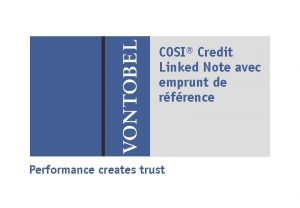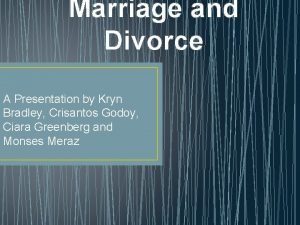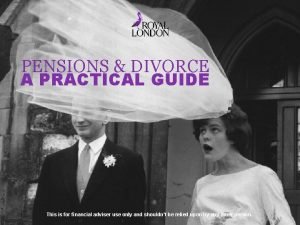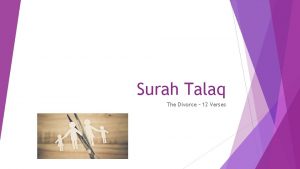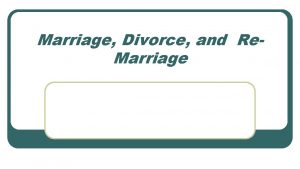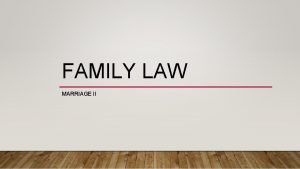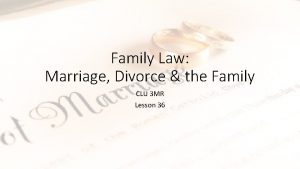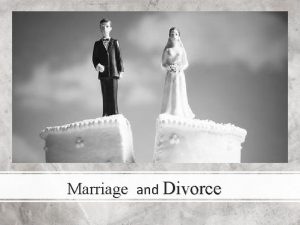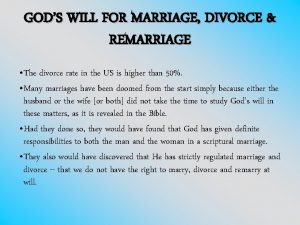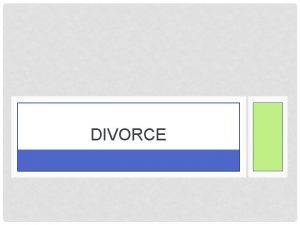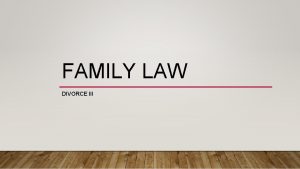Family Law Marriage Divorce the Family CLN 4













- Slides: 13

Family Law: Marriage, Divorce & the Family CLN 4 CR Lesson 87

Family Law: Marriage, Divorce & the Family Learning Goal: • Recognize how the law deals with relationships and the changing family structure 1. What do you know? 2. Terminology 3. Note and discussion (Changing Family Structure & Legal Requirements of Marriage)

What do you know? 1. 2. 3. 4. In what ways does the law manage family life? Who can legally marry? What is necessary to get married? What happens when a marriage ends?

Terminology Adultery, monogamy, polygamy Annulment, separation, marriage breakdown, divorce Common law relationship Solemnization of marriage Custody, best interests of the child

• Deals with the relationships among members of a family: husband wife, parents and children • Marriage is the most common means of forming a family • Marriage is a contract • Rights and responsibilities are a part of all contracts • The state has a strong interest in marriage because it is the perpetuation of society

• “Common law marriages” were the norm until the mid-1700 s, based on private agreement • The church of England didn’t approve • First Marriage Act was passed in 1753 • • Outlined requirements necessary for a marriage to be valid Marriage laws are divided between Fed. And Prov. Gov’t in Canada Essential requirements for valid marriage are federal concerns Solemnization of marriage is prov. Concern • Marriage licenses have been downloaded to the municipal gov’ts • Common law arrangements have recently been entrenched in law, as well

Essential Requirements of Marriage 1. Mental capacity • Can’t be mentally ill or under the influence of drugs or alcohol when getting married 2. Close Relationships • Can’t be too closely related • Affinity—by marriage • Consanguinity—by blood • See p. 441 in text for details • A special act of Parliament may be granted to allow certain individuals to marry

3. Unmarried Status • Marriage is monogamous in Canada—you can only be married to one person at a time • Bigamy is the crime of being married to 2 people at the same time • Presumption of death certificate is available when a spouse has disappeared for at least 7 years 4. Genuine Consent • Must give free and voluntary consent • Can be declared invalid • I) mistake—identity of one person, nature of the ceremony • 2) duress—marries due to fear for life, health, or freedom • shotgun marriages!

5. Minimum Age • In most provinces the minimum age for marriage has been set at 16 (with parental permission) • However, the courts have shown that parental permission is not essential

Formal Requirements of Marriage • Provinces have jurisdiction over marriage procedures 1. Marriage Licence or Banns • Buy a licence at city hall between 3 months and 3 days before the marriage • Have an announcement made in the couple’s church for 2 or 3 consecutive services 2. Marriage Ceremony • Performed by someone with legal authority to do so • Wherever the couple would like it to be performed • Must make a solemn declaration during the ceremony • Must state that they know of no reason why they shouldn’t marry

3. Establishing Age Requirement • Must be 18 or 19 to marry on your own • Must be 16, with parental permission • In some provinces, if pregnant, can marry below age 16 • Must be 16 in Ontario

4. Registering the Marriage • Certificates are issued after registration • Signed by the officiant of the marriage • Kept on record for legal purposes

Tasks: 1. Page 436: Case A. A. v B. B. (complete questions 1 -4) 2. Page 441: You be the Judge Feng v Yuen (answer the question at the end)
 Credit linked note
Credit linked note Marriage and divorce presentation
Marriage and divorce presentation Law on adultery and divorce
Law on adultery and divorce How to get divorce in india from wife
How to get divorce in india from wife Newton's first law and second law and third law
Newton's first law and second law and third law Si unit of newton's first law
Si unit of newton's first law Boyle's law charles law avogadro's law
Boyle's law charles law avogadro's law Constant in avogadro's law
Constant in avogadro's law Usu grad school application
Usu grad school application Malachi 2 13-16
Malachi 2 13-16 Surah talaq ayat
Surah talaq ayat High eggs hearse sized hay lee
High eggs hearse sized hay lee Functionalist view on divorce
Functionalist view on divorce Divorce jackie kay
Divorce jackie kay
